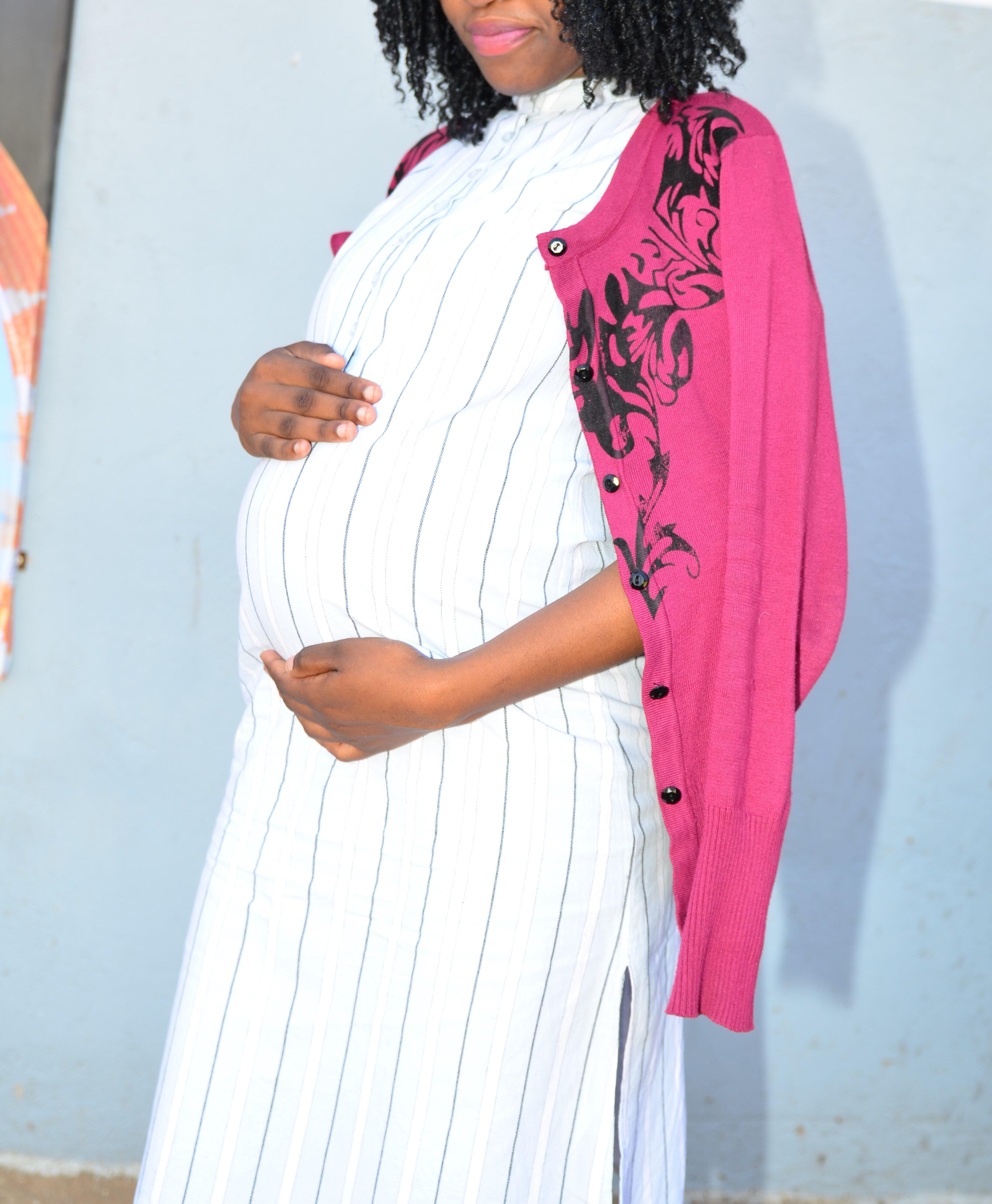Six months ago when 22 year old Neo found out that she was expecting her first child she was elated, but things took a different turn on the 30th March 2020 when Botswana announced its first three confirmed cases of COVID-19. All her planning was suddenly thrown into disarray. She is on lockdown alone, away from her family and partner, who all live in different towns. Lockdown means their regular weekends visits had to stop as movements between towns is prohibited.
Her happiness has been replaced by anxiety.
“It is such a nightmare for me. This is my first pregnancy, so I need all the support I can, from my family, my partner and the healthcare professionals. I have so many unanswered questions” says Neo.
To exacerbate Neo’s anxieties, a few weeks into lockdown a lot of stories emerged on social media platforms of pregnant women whose antenatal appointments were reportedly postponed or cancelled, while some were returned from health facilities without being helped.
“Pregnant women are extremely vulnerable right now. We used to worry just about delivering healthy babies and being good mothers. But as we face a pandemic, the question is no longer whether you will be a good enough mother but whether you will be able to ensure your baby is healthy and protected and if you will survive through this,” she adds.
Even though there is currently no evidence to suggest that pregnant women are at any more risk of contracting coronavirus than the general population or to suggest that the virus causes an increased risk of miscarriage if infected, Neo says the thought of going to the hospital fills her with an overwhelming sense of dread and panic.
“I used to look forward to all my checkups. But now, the idea of being at the hospital ,surrounded by patients and doctors/nurses whom you have no idea if they have the virus or not, feels like I will be exposing myself and my unborn baby to harm,” she says.
Karabo, another pregnant woman expresses similar concerns but says she felt a sense of relief after her antenatal appointment with her midwife.
“It has been such an emotional rollercoaster for me, but during my appointment I managed to have an extensive discussion with my midwife concerning my safety and health. She reassured me that they are taking every measure to preserve the health of our pregnancy, and I believe her because I have seen quite a positive change in how we are assisted,” she says.
Karabo adds that she was happy her clinic has reduced the number of scheduled ANC appointments at the facility to minimize overcrowding and marked their designated waiting area to maintain social distancing. The clinic has also taken measures to make sure that pregnant women do not mix with the general patients and provide key messages about the virus during appointments to minimize fear and confusion.
She however noted that getting her movement permit was frustrating as the online application was not approved on time, forcing her to apply for it physically, something she would rather avoid.
UNFPA Botswana has been supporting the Ministry of Health and Wellness to ensure that pregnant women like Neo and Karabo continue to access the services they need during the COVID19 pandemic.
The Ministry of Health and Wellness has prioritised maternal health (ANC, PNC, delivery, Family planning), child welfare and ART as minimum essential packages of services that should not be interrupted during the period of extreme social distancing (lockdown). UNFPA is supporting the MoHW to develop facility level Guidelines (including algorithms and checklists) on the management of pregnant women in the face of COVID-19. During pandemics, when health and social systems are struggling to cope, SRH services are often sidelined which often leads to increased maternal mortality and morbidity.
UNFPA’s support for COVID-19 preparedness and response focuses on ensuring continuity of SRH services and interventions, including protection of health workers; addressing gender-based violence and ensuring the supply of modern contraceptives and reproductive health commodities.
-Priscilla Rabasimane


